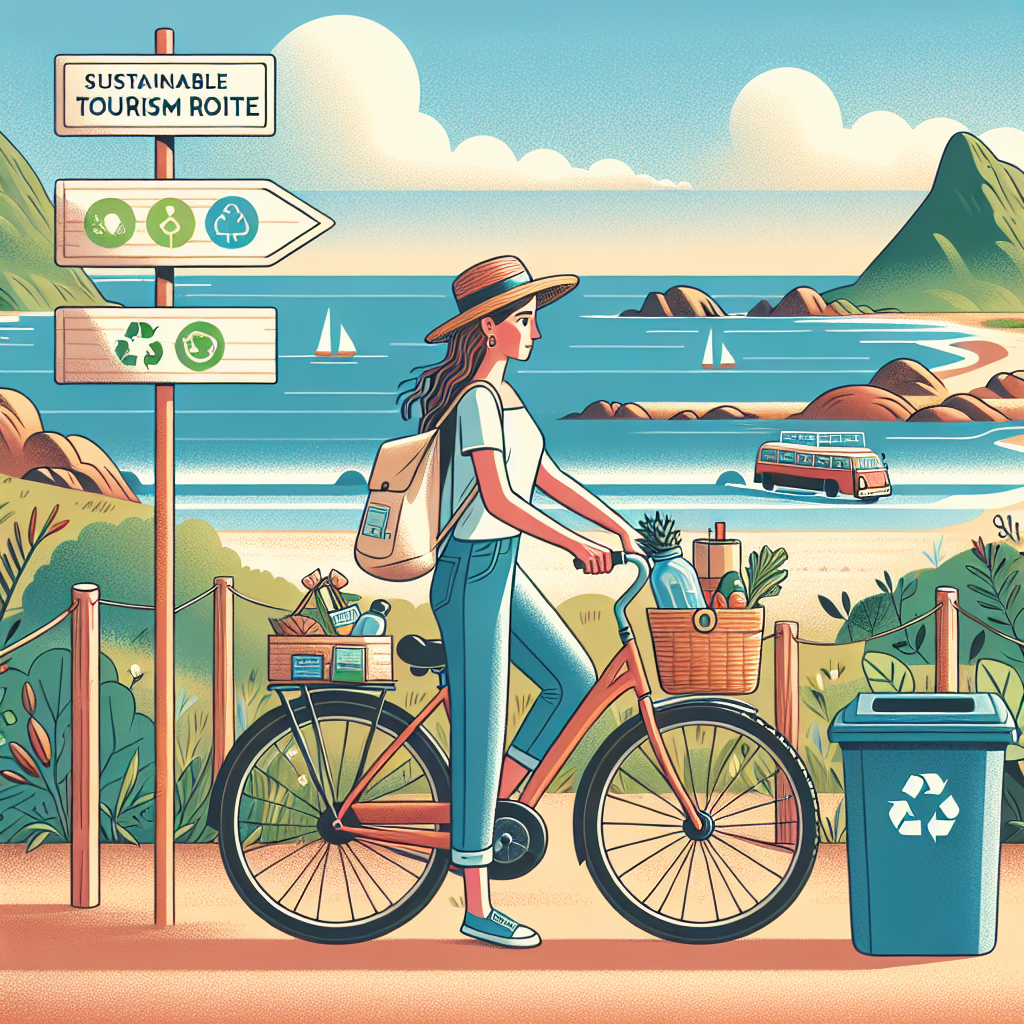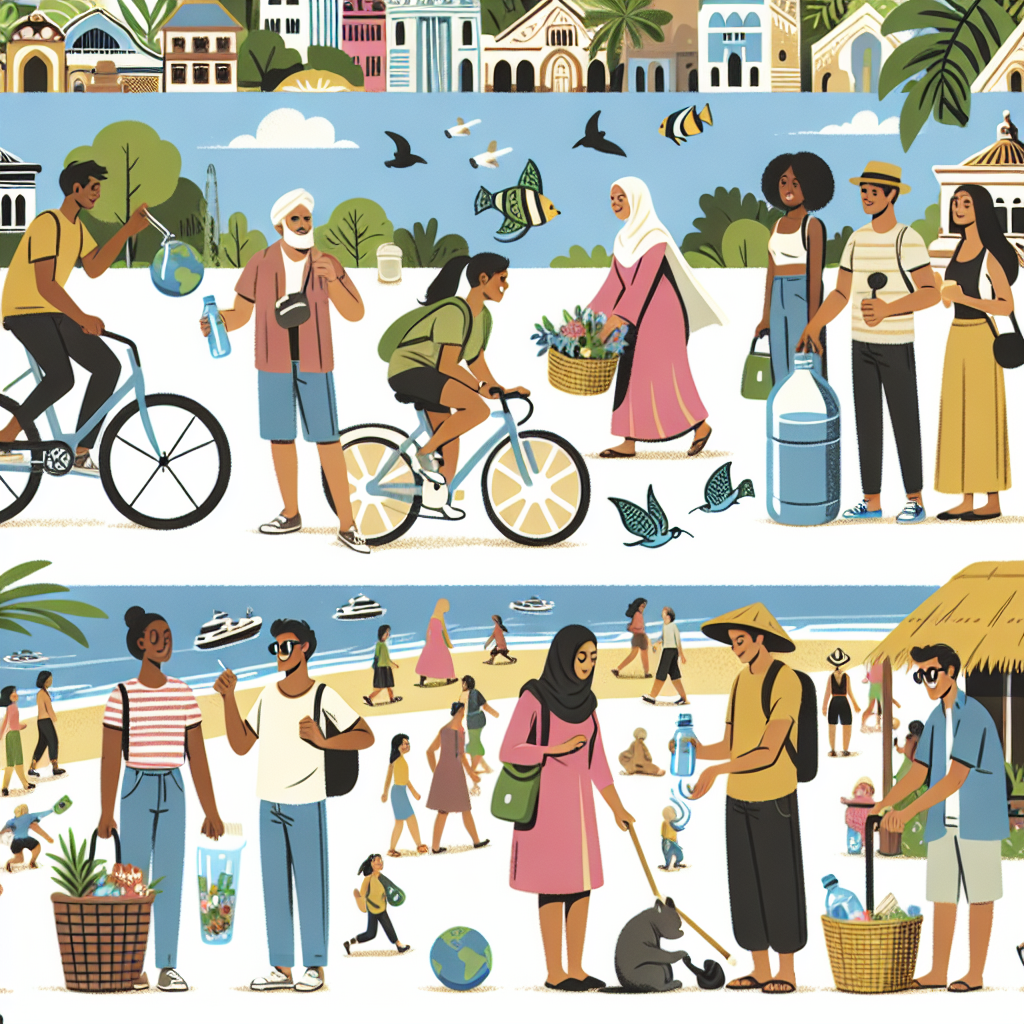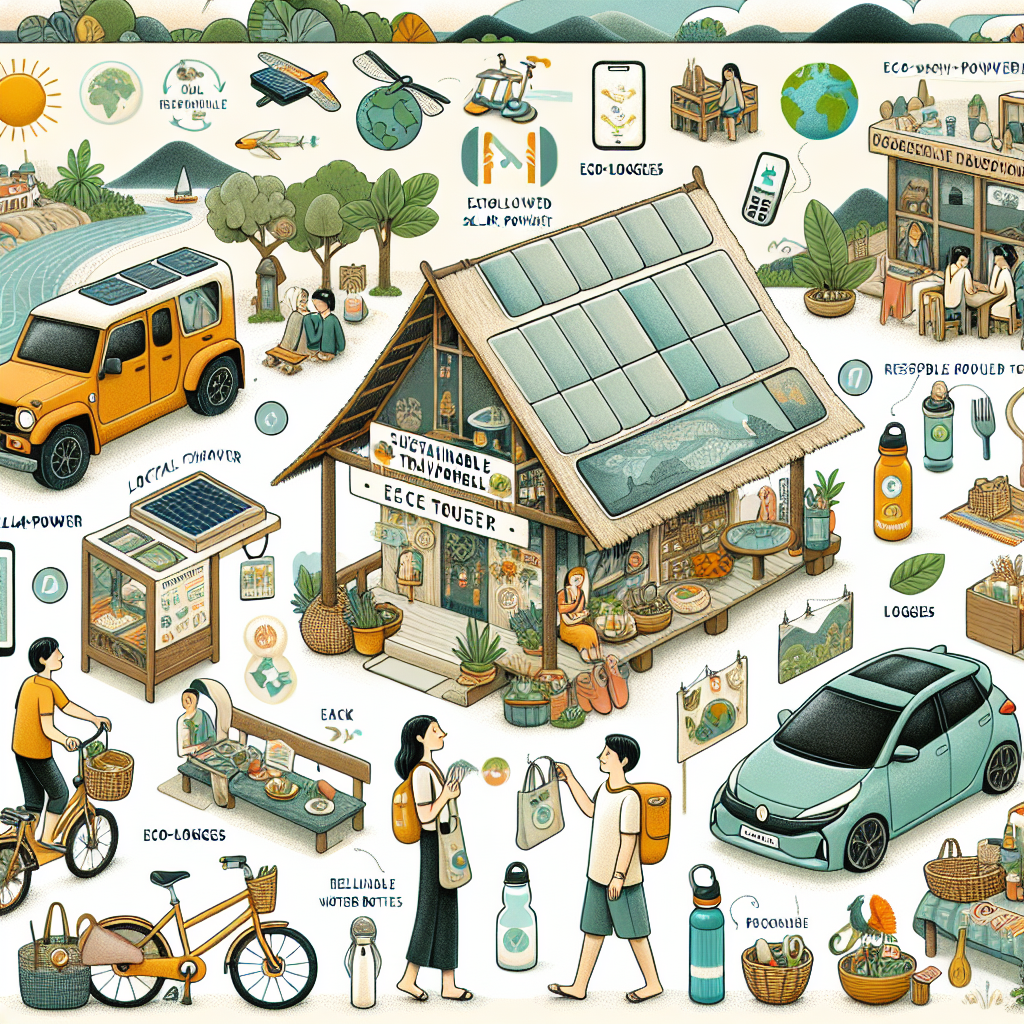A Beginner's Guide to Sustainable Travel: How to Be a More Eco-Conscious Tourist

Table of Contents
Table of Contents
Introduction
Traveling offers an incredible opportunity to explore new cultures, meet diverse people, and marvel at the beauty of our planet. However, with the rising popularity of tourism, its environmental impact has become a pressing concern. From carbon emissions to overtourism, today’s travelers face the challenge of balancing their wanderlust with their responsibility to protect our Earth.
In this beginner's guide to sustainable travel, you'll learn practical, easy-to-implement strategies to minimize your ecological footprint while exploring the world. Whether you’re planning a weekend getaway or a long-haul adventure, adopting eco-conscious travel habits is essential for preserving destinations for future generations. Let’s dive in and discover how to be a more responsible and sustainable tourist.
What Is Sustainable Travel?
Sustainable travel focuses on reducing the negative impact of tourism on the environment, local communities, and cultural heritage. It’s about making mindful choices, such as supporting local businesses, reducing waste, and opting for eco-friendly accommodations. By traveling sustainably, you contribute to protecting the planet while creating meaningful, authentic experiences.

Steps to Become a More Eco-Conscious Tourist
1. Choose Eco-Friendly Transportation
- Fly less, choose direct flights: Air travel is one of the largest contributors to carbon emissions. If possible, opt for alternative modes of transportation like trains or buses.
- Use public transport or walk: When exploring a destination, use buses, trams, or bikes instead of renting a car. Walking is not only eco-friendly but also a fantastic way to immerse yourself in the local culture.
- Offset your carbon footprint: Many airlines and travel companies now offer carbon offset programs. Consider purchasing offsets to reduce your environmental impact.
2. Stay in Green Accommodations
- Look for accommodations with eco-certifications like LEED, Green Globe, or EarthCheck.
- Choose hotels or lodges that use renewable energy, recycle, and support local communities.
- Consider staying in smaller, locally owned guesthouses or eco-lodges to ensure your money benefits the local economy.
3. Pack Sustainably
- Use a reusable water bottle, utensils, and tote bags to minimize single-use plastic waste.
- Pack lightweight and eco-friendly toiletries, such as biodegradable soap and shampoo bars.
- Bring a portable solar charger to reduce reliance on non-renewable energy.
4. Support Local Communities
- Eat at locally owned restaurants and shop at markets to support the regional economy.
- Choose tour operators that employ local guides and respect cultural traditions.
- Respect wildlife and nature by avoiding unethical animal tourism or activities that harm ecosystems.

Expert Advice: Tips for Sustainable Travel

- Travel during the off-season: Avoid peak tourist seasons to reduce overcrowding and strain on resources.
- Take shorter showers: Water is precious, especially in drought-prone destinations. Conserve it whenever possible.
- Say no to plastic: From straws to bags, avoid using single-use plastics by bringing your own sustainable alternatives.
- Research destinations: Some places are struggling with overtourism. Consider visiting lesser-known spots to spread the economic benefits of travel.
- Leave no trace: Always clean up after yourself, whether you’re hiking, camping, or at the beach.
Practical Information for Sustainable Travel
Best Time to Travel
- Traveling during the shoulder or off-seasons reduces environmental strain and offers a more authentic experience.
Cost Considerations
- While some eco-friendly options may seem pricier, they often provide better long-term value. Supporting local businesses or traveling slower can also save you money.
Tools and Preparation
- Download apps like Ecosia (a search engine that plants trees) and HappyCow (for finding sustainable dining options).
- Pack light to reduce fuel consumption on flights.
Local Customs and Regulations
- Educate yourself about the cultural norms and environmental regulations of your destination.
- Participate in local conservation efforts or volunteer for eco-projects where possible.

Conclusion
Sustainable travel is not just a trend—it’s a necessary shift toward protecting our planet while experiencing all it has to offer. By making mindful choices, you play a part in preserving the beauty and diversity of the world for future generations. Remember, small changes add up, whether it's choosing public transportation, staying in eco-friendly accommodations, or supporting local businesses.
Ready to start planning your next eco-conscious adventure? Plan your perfect Global adventure with AI Plan Trip today! Let’s create a travel experience that’s not only unforgettable but also sustainable.
Things To Do
You Might Also Like

Cape Town for Adventure Seekers: Shark Cage Diving, Hiking, and More

Budget Travel Guide to Morocco: Exploring Souks, Deserts, and Mountains
